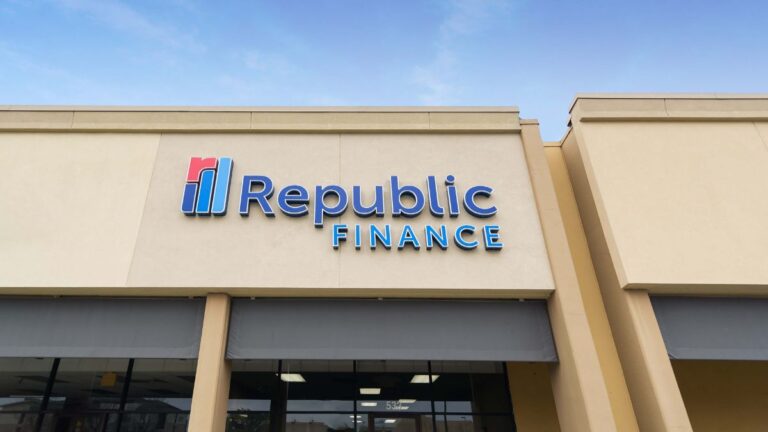Real Estate Finance: Your Guide to Building Wealth through Smart Investments
Real estate has long been seen as one of the most reliable paths to building wealth. Whether you’re buying your first home as an investment or looking to grow a portfolio of income-generating properties, understanding real estate finance is critical. Why? Because the right financing strategy can make or break your property investments.
This blog will guide you through everything you need to know about real estate finance—from basic concepts to tips on managing risk—helping you build a stronger foundation for long-term financial growth.
What Is Real Estate Finance?
At its core, real estate finance is all about securing the capital needed to purchase, develop, and maintain properties. It involves understanding loan structures, interest rates, and investment strategies tailored to different kinds of properties like residential homes, commercial buildings, or multi-family units.
Unlike other types of investments, real estate offers the opportunity to leverage debt to build wealth. With the right approach, you can use other people’s money (like a bank loan or private lending) to fund your projects while retaining ownership of valuable assets.
Why Invest in Real Estate?
Before we get into the financial details, it’s important to explore why real estate is such a popular investment vehicle.
Key Benefits of Real Estate Investment
- Steady Cash Flow
Investing in rental properties creates an ongoing income stream, whether in the form of monthly rent payments or leasing fees.
- Property Appreciation
Real estate generally appreciates in value over time, which means more profit when it’s time to sell.
- Tax Advantages
From mortgage interest deductions to depreciation benefits, real estate offers lucrative tax breaks for investors.
- Portfolio Diversification
Adding real estate to your portfolio spreads your risk across different asset classes, balancing out fluctuations in the stock market.
Types of Real Estate Financing Options
There is no one-size-fits-all solution for securing financing in real estate. Each option has its own benefits and drawbacks, depending on your financial goals and risk tolerance. Here are the most common financing options investors use.
1. Traditional Bank Loans
This is the most common route for real estate financing. Banks typically offer fixed or variable-rate mortgages with terms ranging from 15 to 30 years.
Best for:
- First-time homebuyers
- Investors looking for stability in fixed interest rates
Considerations:
Make sure your credit score is solid and save up for a significant down payment—often 20% for investors.
2. FHA and VA Loans
If you’re a first-time buyer or a veteran, you may qualify for government-backed loans. FHA loans require lower down payments, and VA loans are available with zero down payment.
Best for:
- Buyers with limited savings
- Military veterans and active-duty personnel
Considerations:
There are restrictions on property types and requirements around primary residency for these types of loans.
3. Hard Money Loans
Hard money loans are short-term loans provided by private lenders rather than traditional banks. They are typically asset-based, meaning the property itself serves as collateral.
Best for:
- Fix-and-flip investors or those looking to quickly resell properties
- Investors needing quick access to capital
Considerations:
High interest rates and short repayment terms make this a high-risk option.
4. Owner Financing
Sometimes property sellers will act as the bank, financing the buyer’s purchase instead of requiring a third-party lender. The buyer makes monthly payments directly to the seller.
Best for:
- Investors with limited access to traditional financing
- Buyers who want flexible terms
Considerations:
Owner financing typically depends on the seller’s willingness to negotiate and their overall financial standing.
5. Real Estate Syndication or Partnerships
Pooling resources with other investors is another effective way to finance real estate projects. Whether through official syndications or informal joint ventures, you can invest in larger, more profitable properties that might have been out of reach otherwise.
Best for:
- Investors with limited initial capital
- Those looking to diversify ownership risk
Considerations:
Partnership agreements must clearly define responsibilities, profit-sharing terms, and ways to handle disagreements.
Key Terminology Every Investor Should Know
If you’re new to real estate finance, here are a few key terms that you’ll encounter along the way.
- Loan-to-Value Ratio (LTV): This is the percentage of the property value that a lender is willing to finance. For example, an 80% LTV means the buyer must provide the other 20% as a down payment.
- Debt Service Coverage Ratio (DSCR): Used to evaluate whether rental income can cover loan payments. Higher DSCRs indicate better financial health.
- Cap Rate: The capitalization rate measures the potential return on your investment property as a percentage. It’s calculated by dividing net operating income by the property’s price.
- Appreciation: This refers to the increase in a property’s value over time due to factors like market conditions or improvements made to the property.
Tips for Successfully Financing Your Real Estate Investment
Choosing the right financing route is only half the battle—your overall strategy and preparedness are just as important. Here’s how to position yourself for success.
1. Do the Math
Accurately assess the financial feasibility of your investment. Use tools like mortgage calculators, and consider costs like taxes, insurance, maintenance, and HOA fees.
2. Get Pre-Approved
Pre-approval from lenders shows sellers that you’re serious, giving you an edge in competitive markets.
3. Maintain a Good Credit Score
A strong credit score opens the door to better loan terms and can help you save thousands in interest over the life of your loan.
4. Have a Contingency Plan
Real estate isn’t without risk. Have backup plans, like a rainy-day fund or secondary financing options, to cover unexpected expenses.
5. Consult Real Estate Professionals
No matter how knowledgeable you are, real estate attorneys, accountants, and mortgage brokers can spot details that you might miss.
How to Manage Financing Risks
Like any investment, real estate comes with risks. However, with careful planning, these risks can be mitigated effectively.
- Market Research: Study local market trends and economic factors to assess potential property appreciation.
- Diversify Properties: Don’t rely solely on one property type; mix residential, commercial, and multi-family units as your portfolio grows.
- Avoid Over-leveraging: Don’t take on more debt than you can reasonably manage. Just because a lender approves you for a higher loan doesn’t mean you should borrow it.
Start Your Real Estate Investment Journey Today
Real estate finance is the backbone of any successful property investment strategy. By understanding the different financing options, managing risks smartly, and staying informed about market trends, you’re laying the groundwork for your financial future.
Whether you’re buying your first investment property or growing your portfolio, there’s no better time than now to take action. Explore your financing options, consult trusted advisors, and begin your real estate investment journey today.



